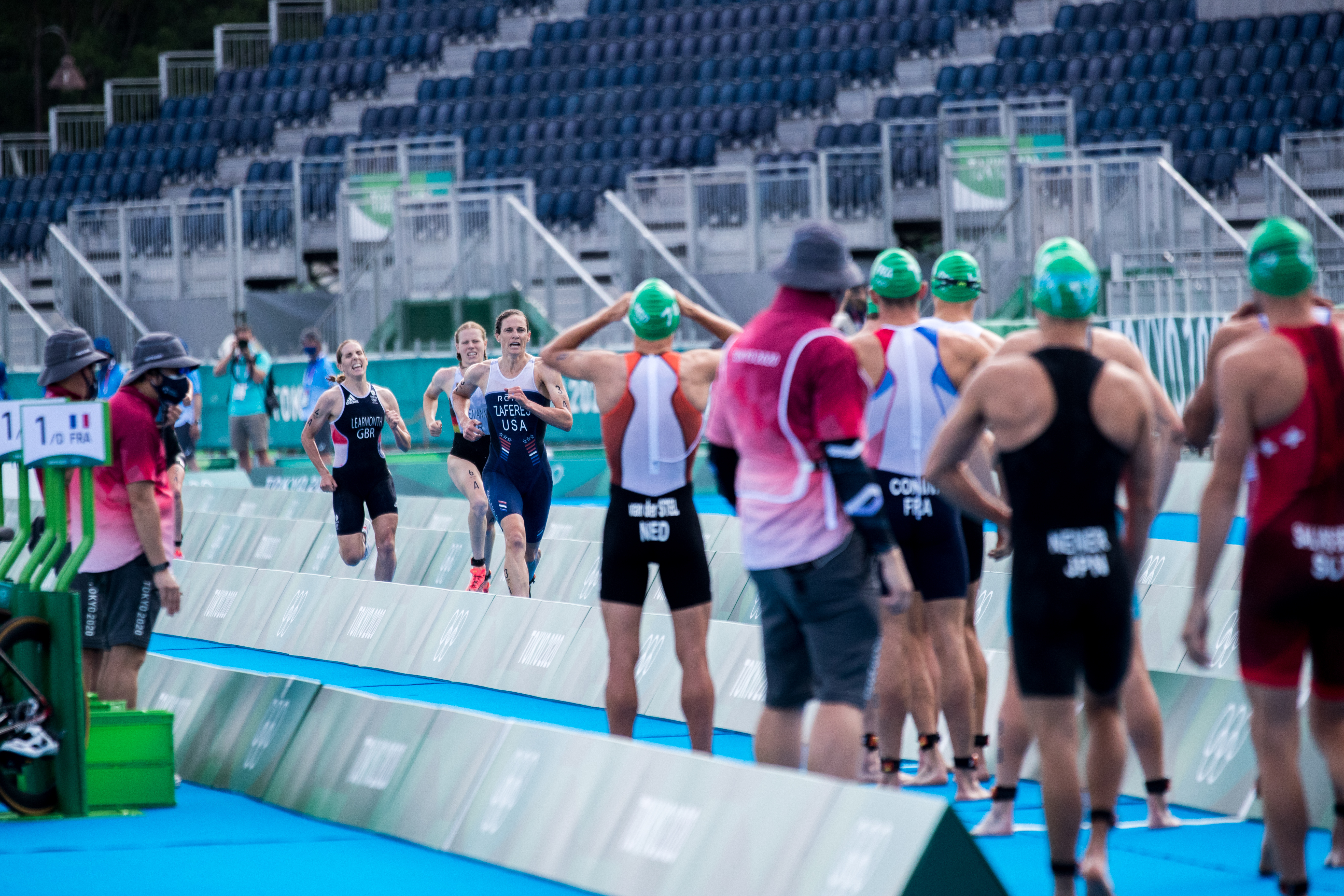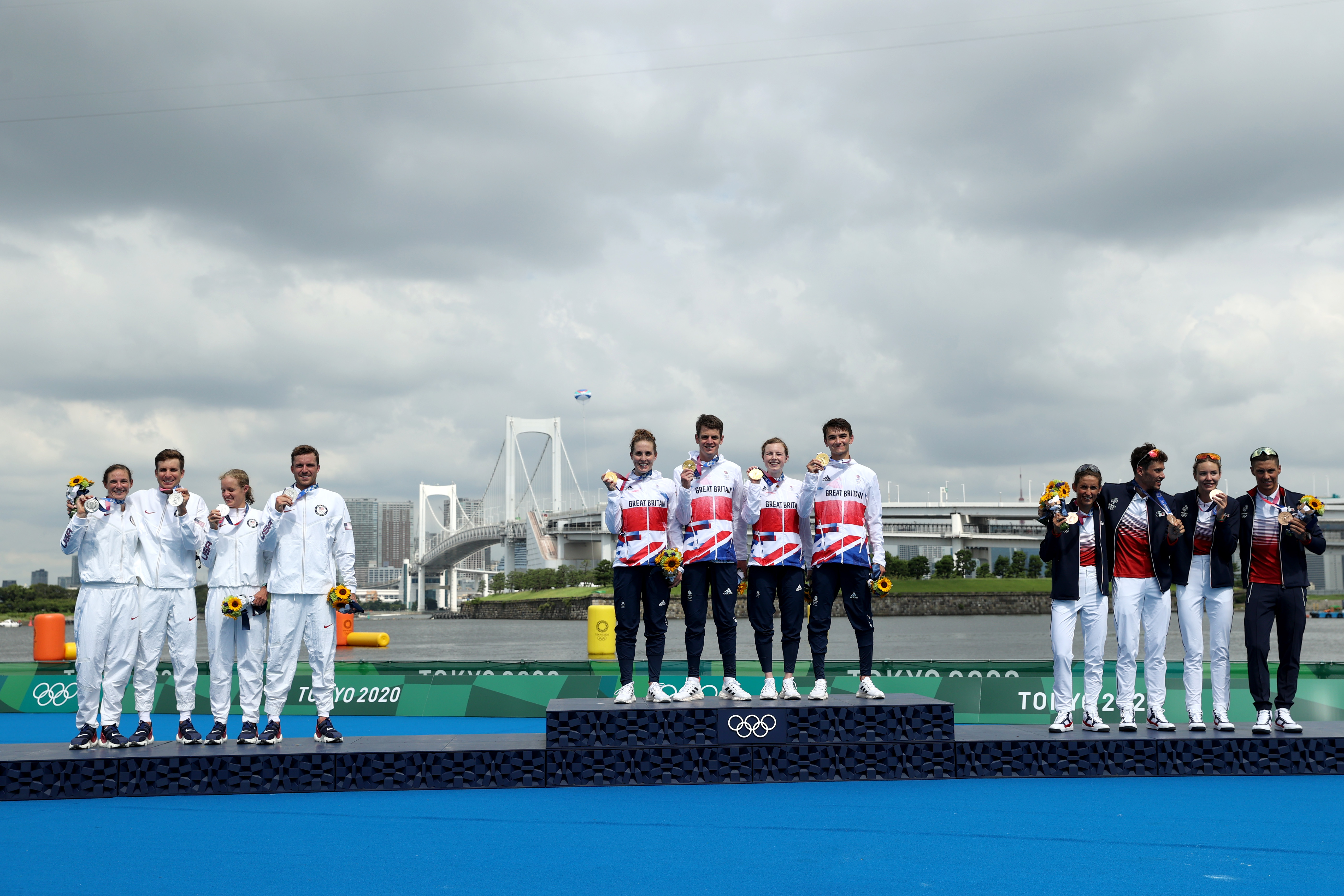Tom Bishop reflects on Tokyo 2020
Narrowly missing out on a place in Tokyo himself, GB's Tom Bishop reflects on the Tokyo 2020 Olympics and shares some professional racing advice.

I’m sure we can all agree that the Olympians in Tokyo made our sport proud. We showed the world how dynamic and different triathlon racing can be.
The men’s race offered a tactical showdown where technology, science and strategy all came together, right down to the wire. While the women’s race provided a gutsy battle in tough conditions, attrition winning out.
The standard of both races was phenomenal and I was inspired by all the British performances. Both our medallists, Alex Yee and Georgia Taylor-Brown, showed their class on the world stage, lifting their game at the highest level and delivering. Jonny Brownlee and Jess Learmonth also delivered exceptional results, despite being just off the podium.
Jonny demonstrated that he is still one of the greatest triathletes of all time and Jess overcame a gruelling winter of injury to finish ninth, and also contributed strategically towards Georgia’s second place. I also thought Vicky Holland’s race was great, given the fact she was involved in an incident on the bike and forced into the barriers. Having spent a month at altitude with her, I’m certain she would have been hunting down the front pack otherwise.
I won’t go into an in-depth analysis of the races, but I will assure you that Great Britain’s delivery, yet again, shows that we are the best triathlon nation in the world when it comes to the Olympic games. Our legacy stands, and I’m proud to have been a tiny player along the way, even if I didn’t make it to Japan myself.
Both Norway’s Kristian Blummenfelt and Bermuda’s Flora Duffy were well-deserved gold medal winners; the meticulous preparation they had put into their Olympic preparation evidently paid off.
The USA’s Katie Zafares’ result was one of my favourites of the week given the tribulation she’d been through over the past year, with the passing of her father earlier in 2021. Young Kiwi Hayden Wilde showed his commitment to a medal when he travelled to Europe in late spring; he knew what it would take to perform at the highest level and his third place was truly well earned.
Relay hits the mark

I’m a purest when it comes to triathlon. The ‘Olympic distance’ is my preferred distance to race in a draft-legal format. Yet, I must admit that the relay has been such a fantastic addition to our sport.
Whenever the chance arises, I always want to be part of the action. Sitting at home watching the first-ever triathlon Olympic relay, I can’t deny that I really just wanted to be out there racing. It’s such a scintillating event and the race in Tokyo may well have been the best yet!
The event is essentially four supersprint triathlons raced back-to-back, with two females and two males comprising each team. The race alternates between female and male legs, with a hand-off at the end of each. Strategy is critical when it comes to selecting your team and the order.
With the relay format being so new, it was hard to predict how the race would go, so it was vital for the British team to be in the mix from the start in Tokyo. That’s why our champion swimmer, Jess Learmonth, started for Team GB. Jess is the fastest swimmer in the sport, so would have been aiming to drive the field apart from the get-go.
Jess’ leg was perfect, successfully establishing a break that set Jonny up to further extend the British lead going into the final two legs. In fact, Jonny was the fastest leg of the day, and you could tell he really wanted that gold medal that had eluded him for nine years.
Georgia held the lead, which was critical to our strategy and very impressive given the chase from behind, so hats off to her. Alex was our final leg, but the race behind was not over. Vincent Luis charged through the field and bridged up to Alex, dragging Morgan Pearson into the race for gold. Young though he is, Alex’s experience was apparent as he managed to keep is cool and not panic.
The hard riding done by Luis and Pearson meant that Alex could pull away in the run and secure the first-ever relay gold for Great Britain. The USA team finished second and France in third. There are so many stories behind each athlete and team, and it’s great to see three deserved teams on the podium.
Opportunities await

The addition of the relay into the Games opens up so many more opportunities for people and nations to compete on a world stage. The Dutch team who came fourth are perfect examples of this. They chose to focus on the relay event before even arriving in Tokyo, making the decision for both of their male athletes to bypass the individual event.
The Dutch delivered an amazing result and proved that specialisation does work, but at what cost? This offered up the further question: how do you prepare for supersprint racing?
Firstly, there’s no denying that the best Olympic-distance racers are the best triathletes, as proven by the British team. Yet in the Olympics, a nation is limited to a maximum of three males and three females, so there has to be a crossover between standard- and sprint-course racing, for the sake of world ranking and career longevity.
This may change in the future with the World Triathlon relay series set to make its debut and Super League offering a new team dynamic. Though as of yet, it’s not possible to be a full-time relay athlete and also pay the bills…
Follow Tom on Instagram at @TomwBish
Top image: Getty Images




